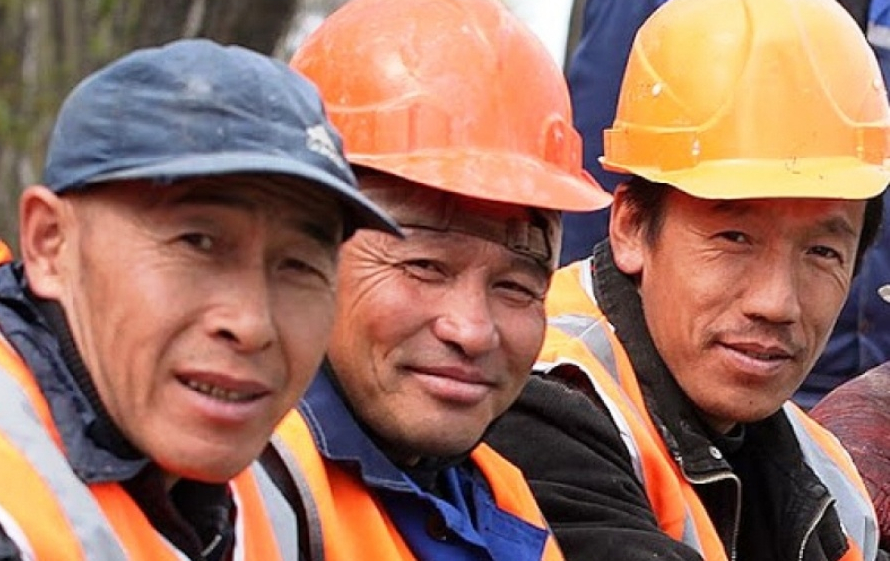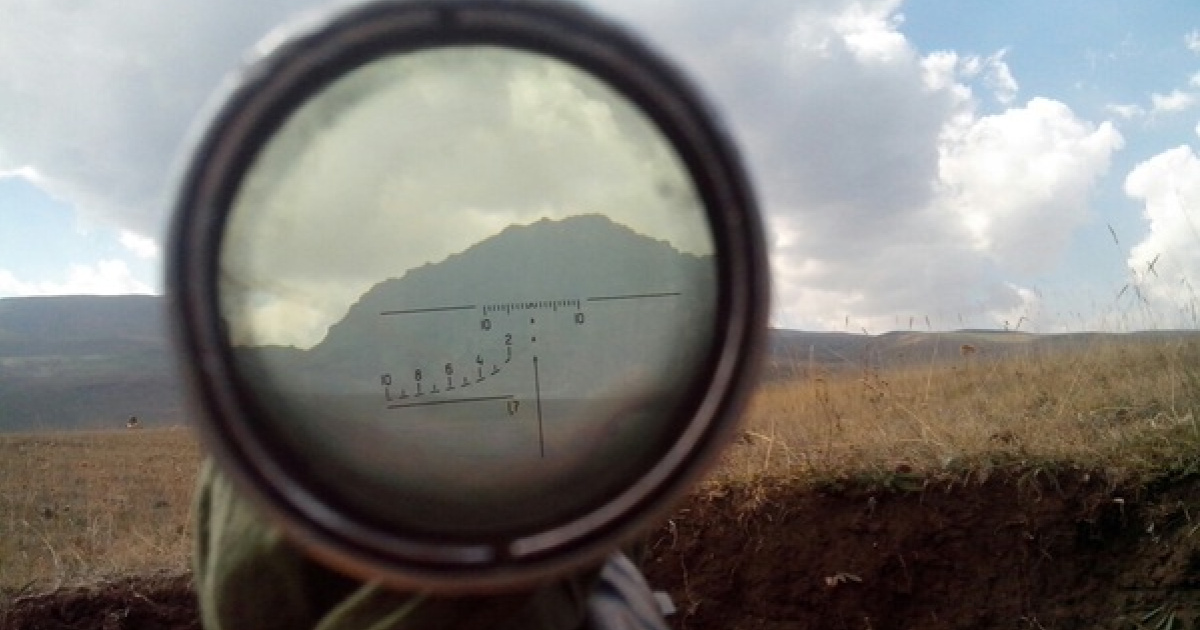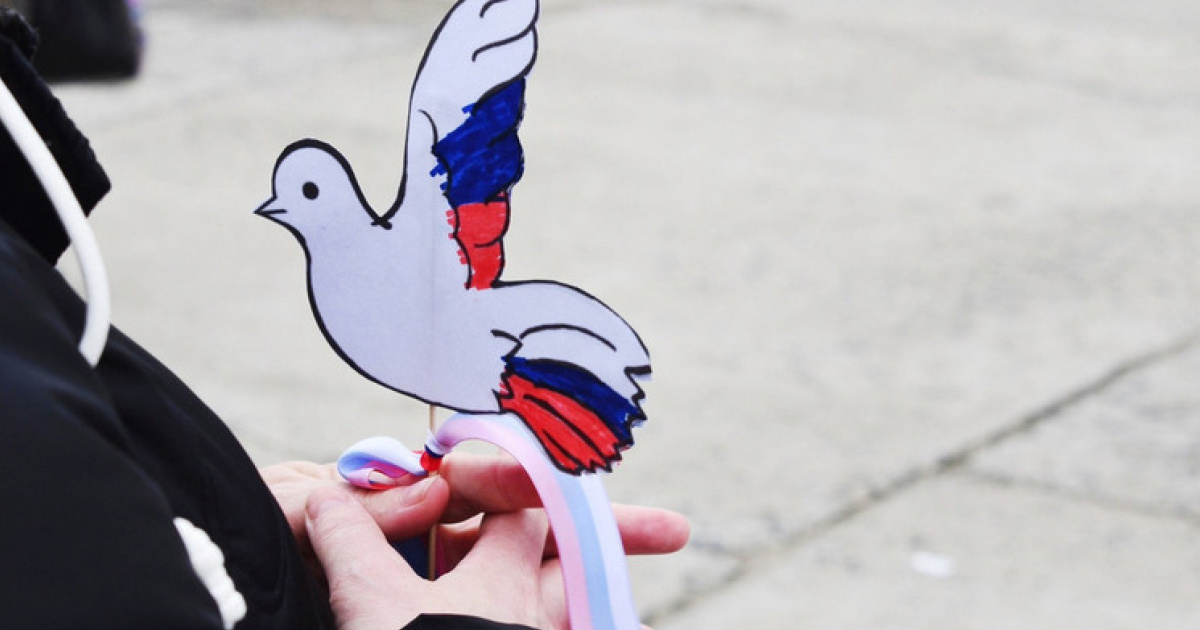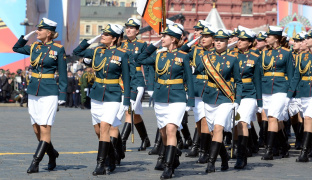Petro Poroshenko continues the offensive against the financial and industrial groups and their owners competing with him for power. At the moment, the position of Dmytro Firtash's Group DF and Ihor Kolomoyskyi's Privat became even more precarious and unstable.
Nitrogen battles
To begin with, on February 21, Prime Minister Volodymyr Groysman signed a decree obliging the Ministry of Energy and Coal Industry to conclude a lease of the gas distribution system with regional authorities.
Approximately 70% of these gas distribution companies are indirectly owned by the owner of Group DF D.Firtash and ex-Deputy Prime Minister Yuriy Boyko.
It is obvious why they did not pay the state while Boyko was a vice prime minister.
Earlier, as prime minister, Yuliia Tymoshenko tried to force them to pay, but did not manage to finish what she had started until she lost the presidential election in 2010.
But it is hard to say why the gas business of Firtash-Boyko continued to exploit the state resource for free while the "battlefield" Prime Minister Arseniy Yatsenyuk was in charge.
Nevertheless, V.Groysman, with the political support of the President, succeeded in what the previous governments could not or did not want to do.
This certainly reduced the profitability of the Group DF gas business, depriving it of undeserved superprofits.
Earlier, on February 14, the Cabinet of Ministers of Ukraine headed by V.Groysman placed another very sensitive blow to the Firtash-Boyko group.
On this day, the interdepartmental commission for international trade suspended the previously introduced anti-dumping duties on imports of Russian mineral fertilizers.
Ukrainian producers, Cherkassy and Severodonetsk association Azot and also Rivnoazot applied for these duties to the Cabinet of Ministers.
All of them are part of the Ostchem Holding, which manages the chemical business of Group DF. It is obvious that the decision of the Cabinet of Ministers to remove duties was political and has the following background.
First, the fact that dumping from the Russians really took place is true, because they buy gas from Gazprom for production of mineral fertilizers much cheaper than Ukrainian enterprises.
Accordingly, thy can sell their products cheaper. And from the point of view of supporting the national manufacturer, the imposition of protective duties was justified.
But there is also the other side of the coin: the local producer, having got rid of competition with foreign suppliers, gets a monopoly status in the domestic market. And it starts dictating its price conditions to consumers, in this case to Ukrainian farmers.
This is quite common. For example, after the introduction in 2016-2017 the anti-dumping duties on the Chinese rolled metal, American producers immediately raised their prices.
In this case, antimonopoly services should have their say, but in Ukraine this department has always had an efficiency close to zero.
Therefore, by protecting producers of nitrogen fertilizers, the CMU worsened the situation of farmers, whose costs were increased and the competitiveness of their products in foreign markets was reduced.
In addition, there was a political component: Group DF has repeatedly threatened to stop its chemical plants, thereby putting sowing campaign in Ukraine at risk.
And in order to prevent this, the CMU had to stop its very decision on anti-dumping duties on the import of Russian fertilizers.
After that, it became possible to deal with Firtash-Boyko in one delicate monetary issue...
Gas slipknot of (for) Firtash
If you think about it, there is something symbolic in the fact that the existence of the Group DF, founded due to "schemes" of RosUkrEnergo, is now threatened because of gas problems.
Making sure that sowing will not be a problem anymore, the Cabinet of Ministers moved on to pressure Ostchem, seeking the company’s gas debt repayment.
To this end, in early March, the state-owned company Ukrtransgaz, part of the Naftogaz of Ukraine, began to reduce pressure in the gas transportation system of Ostchem enterprises.
This led to their halt. In this regard, it is worth recalling that D.Firtash "forgot" to pay the state for consumed gas earlier too.
For example, in 2014, Naftogaz sought from Ostchem payment of debt for the resources consumed in 2009-2011 in the amount of USD 110 million (without indexing and penalties).
Then the issue was resolved through a settlement agreement: the parties approved a schedule of debt restructuring, the latest payments were to be held a year ago, in February 2016.
Nevertheless, Firtash did not give up the habit of acting according to the principle "what I owe you, I forgive you", natural to most Ukrainian oligarchs.
Therefore, Ostchem also had debts. Thus, accustomed to acting impudently in relation to the state under the previous government, D.Firtash himself was put under attack in this case.
He did not earn anything on the production of fertilizers for the spring sowing season, and it was not sabotaged.
According to the Ministry of Economy and Trade of Ukraine, the availability of mineral fertilizers was 82% as of the end of March.
It is only necessary to clarify that if it were not for the turbid games around the state Odessa port plant, a major producer of nitrogen fertilizers, this figure would be close to 100%.
Nevertheless, in any case, the sowing process took place even without D.Firtash. "Nitrogen blackmailing" has not worked. But now there is a question of further control by the oligarch of the above-listed chemical enterprises.
In early April, Luhansk governor Yuriy Harbuz said that he applied to the presidential administration with a proposition to transfer the Severodonetsk Azot to the provisional administration of the Luhansk military-civil administration.
Allegedly, the owner is abroad, has no desire or opportunity to think of the problems of the enterprise and the region, but the economic life of the front-line region should continue.
People should have jobs and salaries, and the budget – tax revenues from the work of one of the largest industrial facilities in Luhansk, said Harbuz.
It is curious that he proposed to transfer the enterprise to local authorities for interim management – until the ATO ends.
This discourages the Group DF lawyers from litigating actual nationalization, while everyone understands that the ATO period can last up to several decades.
In addition, on April 8, the chairman of the Naftogaz board Andriy Kobolev said that gas supplies to Ostchem enterprises can be resumed on give-and-take terms.
It means that Naftogaz will simply give its gas to Azot for processing into mineral fertilizers – and Naftogaz will own the fertilizers received.
And Ostchem plants will simply be able to keep a part of the product as payment for processing in this case.
That is, enterprises are deprived of the opportunity to generate sufficiently powerful free financial flow and fall into complete dependence on the supplier of raw materials.
Thus, Ostchem plants will actually pass under the control of the state company – and those who are behind it without any nationalization and expropriation.
Relevant decisions will be taken by the government before the end of summer, as follows from the statement of the head of the Ministry of Economic Development and Trade Stepan Kubiv.
"What we want to solve is the launch of chemical plants to provide mineral fertilizers after harvesting, in autumn. And we will do it", - he said in Boryspil at the events on occasion of the 20th anniversary of the Procter & Gamble Plant.
Danger threatens Kolomoyskyi
The decision of the Economic Court of the Dnipropetrovsk oblast on March 30 to return 94.5% of the shares of OAO DniproAvia can be viewed as a hit off the target.
As the real assets of this air carrier, controlled by the Privat group, were transferred to other companies of I. Kolomoiskyi prudently and long ago.
That is, he keeps planes, airport and accounts money. A "dummy" company was returned to the state.
In this regard, it is very doubtful that the State Property Fund of Ukraine will be able to recover $8 million penalty from OOO Galtera for nonfulfillment of investment obligations for OAO DniproAvia.
Consideration of the relevant lawsuit against Galtera is scheduled for July 6 in the Dnipropetrovsk Economic Court – so I.Kolomoyskyi has plenty of time to prepare.
It is not improbable that Ihor Kolomoyskyi will try to use such scheme in relation to PAT Ukrnafta – the country's largest oil producer.
Investigations on its abusive acts have been started long ago, but they have not had much success yet.
As it is known, 50%+1 share in Ukrnafta belongs to the state, but in fact it is managed by managers of Privat the owners of which control approximately 43% of Ukrnafta shares through Cyprus offshores.
As a result, Kolomoiskyi and his business partners have been skimming all the "cream" off from the work of Ukrnafta for many years, reselling the extracted resource to related companies at a reduced price.
And the state remains an orphan without receiving due payments for income tax and dividends.
Moreover, a criminal case concerning the theft of money from Ukrnafta under the guise of unsecured commodity credits is in proceedings of the National Anti-Corruption Bureau of Ukraine.
This is when the extracted resource was transferred for sale to companies associated with the representatives of Privat, who passed it then one by one to other intermediaries a number of times, and liquidated themselves without paying for the oil received.
According to estimates of the director of A-95 Consulting Group Serрhiy Kuyun, $575.6 million was stolen from Ukrnafta according to such scheme only in March-August 2015.
$289.5 million plundering is a subject matter of the NABU investigation. However, representatives of the Prosecutor General's Office of Ukraine came to Ukrnafta with a search on April 5 this year. They have more modest claims to the management of the company – just $5.2 million. According to the investigation, Ukrnafta gave inaccurate data on the oil density during the sale of oil at auctions. This led to an underestimation of the volume and "pulled" the damage to the specified amount. Such an interpretation is quite curious and can have two causes.
Firstly, it is the elementary lack of professionalism of investigators of the Prosecutor General's Office of Ukraine, who decided to simply follow the path of least resistance.
Indeed, it is legally much more difficult to prove the criminal intention of the management of Ukrnafta when selling the resource at a discounted price at an auction than the discrepancy between the actual and declared density of oil – which in fact may be a purely technical error.
Secondly, the fact that the Prosecutor General's Office of Ukraine roots against small mismatches, being unaware of the large-scale financial fraud of the management of Ukrnafta, which was reported in the media – may indicate the desire of P. Poroshenko to return the company to the state control without compensation for the damage done in the interests of Privat.
This may explain the absence of any resistance to the investigation by I.Kolomoiskyi.
Let us recall that when prosecutors accompanied by the SSU tried to get into the office of Ukrnafta in March 2015, they were met by armed fighters of the Dnipro volunteer battalion led by I.Kolomoyskyi.
As a result, security officials were not able to make an authorized search.
At the same time, everything happened in a surprisingly dignified and noble manner: the SSU officials just needed to cut the steel fence that was blocking the entrance to the central office with the angle grinder.
Nevertheless, on the part of I.Kolomoiskyi, it is a backdown – the presence of criminal proceedings even for such a "trivial" charge gives a formal basis for changing the management of Ukrnafta and its return under the state control.
As it was with the same Privatbank nationalized by the state in December 2016 - after I.Kolomoiskyi got large sums out from there.
According to the head of the National Bank of Ukraine Valeriya Gontaryeva, the leadership of Privatbank has got $600 million out by fraudulent operations only at the last night before its nationalization.
At the same time V.Gontaryeva did not specify where the NBU board and she personally were watching at that moment – i.e. delicately kept silent about her own role in this story.
However, this issue is of interest to NABU which made searches at the NBU on March 29 as part of the investigation into the abuse of the central bank's management with the issue of refinancing credits to Privatbank.
It is obvious that the main target of the detectives of NABU in this case is V.Gontaryeva herself and her inner circle from among the members of the NBU board.
Nevertheless, the actions of the former owners of Privatbank, I.Kolomoyskyi and his partner Henadiy Boholyubov can be qualified as plundering within the framework of this criminal proceeding.
In such a case, they receive a status of the accused, and the criminal case against them is allocated to a separate proceeding with transfer to the Prosecutor General's Office of Ukraine.
Then I.Kolomoiskyi becomes a persona non grata in Ukraine: he is called in for questioning, put on the wanted list and, if he appears in the country, he is subject to arrest.
Let us recall that exactly the same scenario was earlier implemented in respect of D.Firtash who is now forced to be in Austria without leaving and has no opportunity to come to Ukraine personally in order to deal with issues related to his business here.
Vitaliy Krymov, OstroV




